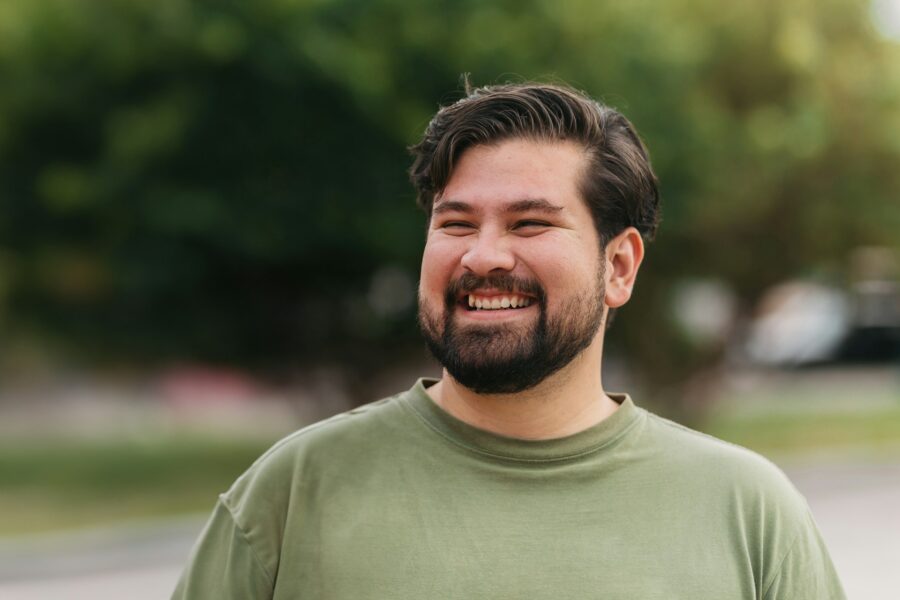Saying “no” feels uncomfortable for a lot of us. Whether it’s in personal relationships, at work, or in social situations, the word “no” can feel loaded with guilt, anxiety, or fear of letting someone down. Even when we know that saying yes to everything is taking a toll on our mental health, our time, and our energy, we still struggle to set boundaries. Who knows why it’s so hard, but it is for most of us. That being said, we really need to learn how to overcome that resistance without feeling like we’re being selfish or inconsiderate.
The truth is, saying no is a skill that takes practice—and it’s one that many of us haven’t fully developed. That doesn’t make it impossible, though—it’s definitely possible to learn how to say no confidently and with zero guilt involved. You just need to understand why it’s hard in the first place and give yourself permission to protect time, energy, and mental health. Here’s why saying no feels so tough, and how to start saying it without feeling bad about it.
You don’t want to disappoint anyone.
One of the main reasons we hesitate to say no is because we’re afraid of disappointing anyone. We want to be seen as reliable, helpful, and accommodating. Whether it’s a friend asking for a favour or a colleague asking you to take on extra work, there’s a natural desire to please and be liked. We fear that saying no will make us seem unkind or uncooperative.
The problem with this mindset is that it puts other people’s needs before our own, often at the expense of our well-being. While it’s great to be supportive, it’s equally important to recognise that your time and energy are finite. When you constantly say yes out of fear of disappointing others, you end up disappointing yourself. Learning to say no doesn’t mean you’re being selfish—it means you’re respecting both your boundaries and the other person’s autonomy. You can be kind and helpful without sacrificing your own needs.
You worry people will think you’re rude or selfish.
There’s a common misconception that saying no is inherently rude or selfish. Society often praises people who go above and beyond, who say yes to everything, and who put everyone else before themselves. This creates the idea that saying no is somehow unacceptable. But the truth is, setting boundaries is an act of self-respect, not selfishness.
When you say no, you’re not telling the other person that they don’t matter. You’re simply recognising that you have your own limits, and that your mental and emotional health need to be prioritised. Saying no can be done politely and respectfully. In fact, people will often appreciate your honesty, and many will respect you more for not overcommitting yourself. You don’t have to be rude or harsh—you can decline politely and still be considerate of their needs.
You’re afraid of missing out.
The fear of missing out, also known as good old FOMO, can be a powerful force in our decision-making process. Saying yes to everything often stems from the fear that if you say no, you’ll miss out on something valuable—whether it’s a social opportunity, a career advancement, or a chance to help someone you care about. You might worry that if you say no, you’ll fall behind or be left out.
The reality is, saying no can actually create space for more meaningful opportunities. When you say yes to everything, you spread yourself too thin and risk not fully enjoying or engaging with the things that truly matter. Saying no gives you the time and energy to focus on what aligns with your goals and values. It’s about quality over quantity. By saying no, you can actually say yes to the things that truly bring you joy, satisfaction, and personal growth.
You’re not used to setting boundaries.
Setting boundaries is a skill that many of us weren’t taught growing up. In fact, many of us were socialised to believe that putting everyone else’s needs ahead of our own was the right thing to do. This often leaves us feeling guilty when we try to draw the line. But boundaries are crucial for protecting our time, energy, and mental health. Without boundaries, we risk burnout and resentment.
The good news is that setting boundaries is something you can practise, and the more you do it, the easier it gets. Start by recognising your limits—what you can and can’t do—and give yourself permission to enforce those limits. Boundaries are not about rejecting or distancing yourself from people; they’re about protecting your well-being so that you can show up as your best self, both for other people and for yourself.
You’re afraid of conflict.
Saying no can feel like an invitation for conflict. Whether it’s a colleague pushing you for help or a friend who expects you to join an event, declining can feel like it might create tension. We often avoid saying no because we don’t want to deal with confrontation or make things uncomfortable.
But here’s the thing: conflict doesn’t always follow when you say no, especially when you do it respectfully. Most people understand that people have limits, and if they react negatively, that’s not a reflection of your decision but of their expectations. It’s also a great opportunity to practise how to handle uncomfortable situations with grace. Saying no doesn’t have to lead to conflict—it can simply lead to a clearer understanding of your boundaries.
You don’t want to feel like you’re letting people down.
It’s hard to say no when you feel like you might be letting someone down. We want to be dependable, and saying no can feel like you’re failing at being a good friend, partner, or colleague. But here’s the reality: by saying no, you’re often helping the other person more than you realise. When you say yes to everything, you can end up spreading yourself too thin, leading to frustration, poor performance, or resentment. Saying no means you’re taking the time to focus on the things that really matter, both for yourself and the people you care about.
The key here is understanding that your value doesn’t come from how much you can do for other people. You’re just as valuable, whether you say yes or no. Letting people down sometimes is part of being human, and it’s a much healthier approach than overextending yourself to the point where you can’t show up for anyone, including yourself.
It’s really hard to break the pattern.
If you’ve spent a long time saying yes to everything, it can become a habit that’s hard to break. You might feel like people expect you to say yes, or that saying no will somehow disrupt the status quo. Breaking free from this pattern takes time and practice. The more you say no, the more natural it will feel. And the more you enforce your boundaries, the less guilt you’ll feel about it.
Start small—say no to something that feels less significant at first, and gradually work your way up to bigger requests. Each time you say no, you reinforce the idea that you are allowed to put yourself first without feeling bad about it. It’s about shifting your mindset from people-pleasing to self-respect.
Now for the good stuff: how you can do it without the guilt!
- Be honest. You don’t have to make up excuses. Just tell the truth—whether it’s that you’re busy, feeling overwhelmed, or simply need a break. People appreciate honesty and will understand.
- Be polite. Saying no doesn’t have to be harsh. You can decline respectfully and still be kind. A simple, “I appreciate you thinking of me, but I can’t take that on right now” goes a long way.
- Keep it short. You don’t need to over-explain or justify your decision. A brief, clear response is often all that’s needed.
- Offer alternatives if you want. If you want to be helpful but can’t commit, offer alternatives, such as suggesting someone else who might be able to help or proposing a different time when you’re available.




